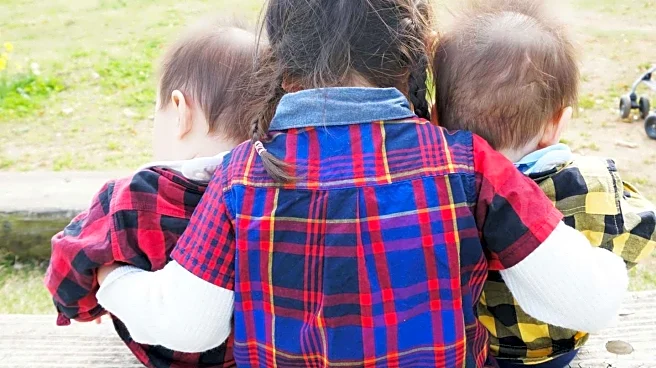What's Happening?
Therapists are observing that oldest siblings often bring specific issues to therapy sessions, including struggles with perfectionism, imposter syndrome, and feelings of parentification. According to licensed marriage and family therapist Aparna Sagaram
and clinical social worker Altheresa Clark, these issues stem from the unique pressures and responsibilities placed on firstborn children. Oldest siblings are often seen as role models and caretakers, leading to high expectations and self-critical tendencies. These dynamics can result in a Type A personality, where individuals feel compelled to achieve perfection and may experience jealousy towards younger siblings who face fewer expectations.
Why It's Important?
Understanding the psychological challenges faced by oldest siblings is crucial for mental health professionals to provide effective support. These individuals often carry the burden of high expectations and may struggle with self-worth and the ability to ask for help. Addressing these issues in therapy can help oldest siblings develop healthier self-perceptions and coping mechanisms, ultimately improving their mental well-being. This insight is particularly relevant for therapists working with clients from diverse cultural backgrounds, where family dynamics and expectations may vary.
Beyond the Headlines
The exploration of birth order effects in therapy highlights broader societal and cultural implications. In many cultures, the role of the oldest sibling is deeply ingrained, affecting family dynamics and individual development. Recognizing these patterns can lead to more culturally sensitive therapeutic approaches and help individuals reconcile their familial roles with personal aspirations. Additionally, this understanding can foster better communication and relationships within families, as members become more aware of the pressures faced by their oldest siblings.
















